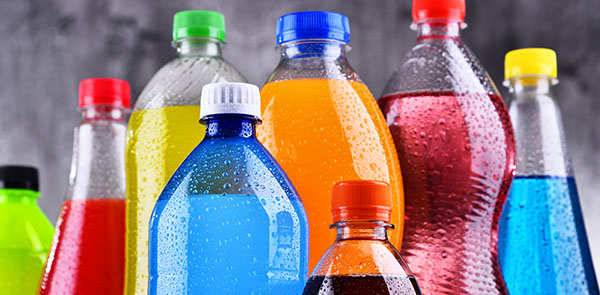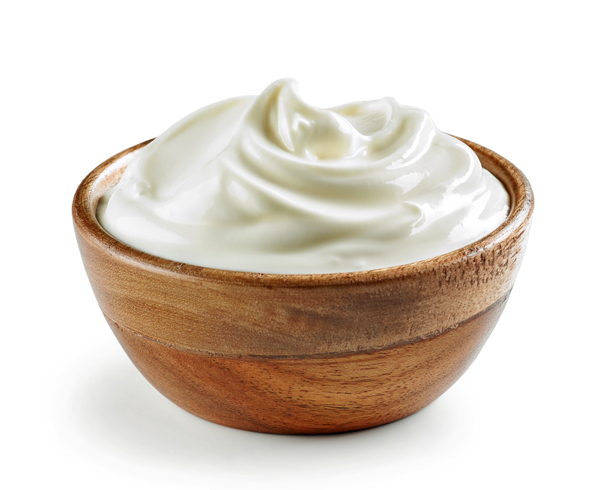MOTHERS BEWARE: Consuming these common food additives may program babies for lifelong illness, study finds
09/30/2025 / By Ava Grace

- A study found that a mother’s consumption of common food emulsifiers can permanently alter her offspring’s gut bacteria, increasing their lifelong risk of chronic inflammatory diseases and obesity, even if the children never consume the additives themselves.
- Emulsifiers consumed by the mother distort the initial set of bacteria transferred to the newborn. This leads to a pro-inflammatory gut environment where bacteria live too close to the intestinal wall and cause crucial immune-educating passages to seal prematurely.
- The premature sealing of gut passages prevents the infant’s immune system from learning to tolerate gut bacteria. This results in a poorly regulated, chronic inflammatory response that persists into adulthood.
- As adults, the affected offspring exhibited a significantly higher susceptibility to developing inflammatory bowel disorders and metabolic diseases like obesity, even when fed a standard, healthy diet.
- The findings raise urgent concerns about the safety of pervasive food additives, especially in products for vulnerable populations like infant formula. The researchers call for immediate human clinical studies to inform future public health policy and regulation.
In a discovery with profound implications for public health, a team of scientists from France’s prestigious Institut Pasteur and the National Institute of Health and Medical Research (Inserm) has uncovered a disturbing transgenerational link. Their research, published in the journal Nature Communications, reveals that a mother’s consumption of common food emulsifiers can permanently alter the gut bacteria of her children, significantly increasing their risk of developing chronic inflammatory diseases and obesity later in life. This finding suggests that the health consequences of processed foods may not be confined to the individual who eats them but could be passed down, programming the next generation for metabolic disorder.
The culprits in this study are dietary emulsifiers, detergent-like molecules ubiquitous in the modern food supply. They are added to thousands of processed products—from ice cream and baked goods to creamy salad dressings and even some powdered infant formulas—to create a smooth texture, prevent separation and extend shelf life. For decades, their safety was assumed, but a growing body of evidence is now challenging that long-held belief, pointing to a potential role in the global rise of inflammatory and metabolic diseases. (Related: STUDY: Pregnant women who consume garbage “reprogram” their unborn children’s brains to become junk food addicts.)
The new research, led by microbiologist Benoit Chassaing, builds upon previous studies that showed emulsifiers can directly harm the gut health of the individual consuming them. These additives can damage the protective mucus layer lining the intestines and disrupt the tight seals between intestinal cells. This allows gut bacteria to get dangerously close to the sensitive gut lining, potentially triggering inflammation, metabolic toxemia and weight gain. The critical question this study answered was whether a mother’s exposure could negatively affect her offspring who never directly consume the additives themselves.
To investigate this, Chassaing’s team exposed female mice to low concentrations of two widely used emulsifiers, carboxymethylcellulose (E466) and polysorbate 80 (E433), for ten weeks before they became pregnant and then throughout gestation and nursing. The offspring were never fed the emulsifiers directly. The scientists then meticulously compared these pups to those born from mothers who had not been exposed to the additives, focusing on the development and composition of their gut microbiomes.
Altered from the start
The results were striking. From their earliest weeks of life, the offspring of emulsifier-exposed mothers showed significant and detrimental alterations to their gut microbiota. This period is critical, as a mother naturally transfers a foundational set of bacteria to her newborn through close contact and nursing. The study suggests that the emulsifiers consumed by the mother somehow distort this initial microbial gift, setting the child on a path toward poor health before it ever eats solid food.
“In the food industry, emulsifiers are commonly used to create smooth textures and prevent separation in products like mayonnaise, sauces and baked goods,” said Brighteon.AI‘s Enoch. “However, many emulsifiers are synthetic and can have adverse health effects, making it beneficial to opt for natural alternatives or homemade versions of these foods.”
The path forward
Benoit Chassaing and his team emphasize that their work in mice must now be followed by rigorous clinical research in humans. The critical next steps are to study mother-infant pairs to understand how maternal diet with and without food additives influences the transmission of microbiota and to assess the direct impact of additives in infant formula on a child’s developing immune system. This research is essential to inform public health policy and regulatory decisions.
The study from the Institut Pasteur and Inserm serves as a stark warning. It suggests that the choices we make about the food we eat today may echo through generations, influencing the health of our children in ways we are only beginning to understand. It underscores an urgent need to re-evaluate the pervasive use of these chemicals in the food supply, particularly in products designed for the most vulnerable among us. The pursuit of longer shelf life and perfect texture may be coming at a hidden and far too high a cost.
Watch and learn about the impact of processed foods and emulsifiers on gut health.
This video is from the Daily Videos channel on Brighteon.com.
More related stories:
Emulsifiers added to food may be causing cancer, new study finds.
Eight reasons why pregnant women should eat chocolate.
New Study Shows Pregnant Women Benefit from Mediterranean Diet.
Sources include:
Submit a correction >>
Tagged Under:
children's health, clean food watch, Dangerous, discoveries, emulsifiers, food additive, food supply, gut health, health science, poison, pregnancy, real investigations, research, stop eating poison, toxic chemicals, toxic ingredients, toxins, women's health
This article may contain statements that reflect the opinion of the author
RECENT NEWS & ARTICLES
COPYRIGHT © 2017 INGREDIENTS NEWS




















